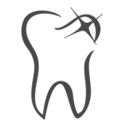
VISITING HOURS:
Week Days - 9 am to 8 pmSundays - Only Emergency Cases
Things You Should Know About Wisdom Teeth Pain and Extraction
Wisdom teeth refer to the third and last molars on each side of the lower and upper jaws. As wisdom teeth are the last permanent teeth that emerge or come in, there is often insufficient space left in your mouth to accommodate them. This can cause the wisdom teeth to be trapped beneath the gum tissues by other bone or teeth and cause them to be impacted which can lead to tenderness and swelling.
How do you know if you have wisdom teeth?
Wisdom teeth are the final teeth that erupt and appear when a person is in their late teenage years or early twenties i.e. 16 and 20 years. There are wisdom teeth that emerge only partially and erupt in a crooked manner which can lead to painful disease and dental crowning. Dentists always recommend people who have wisdom teeth emerging at the age of 16 to 19 years, should get evaluated and find out if the wisdom teeth need to be removed. Permanent teeth that were removed before the age of 20 cause fewer complications as they have less developed roots.
Wisdom tooth extraction refers to the surgical procedure that is performed by an oral surgeon or dentist to remove one or more of the patient’s wisdom teeth. They are commonly known as ‘third molars’ and are called wisdom teeth because they emerge at an advanced or mature age. For some people, the emergence of wisdom teeth doesn’t cause any complications and is a rite of passage but for some people, it can cause painful complications due to crowding in the mouth when the wisdom teeth emerge in the wrong position. Your dentists before the removal will be looking for the following:
- Wisdom teeth that don’t come out properly can cause a lot of difficulties while flossing between the molars next to the wisdom teeth and wisdom teeth.
- Wisdom teeth that face crowding can cause damage to the neighboring teeth.
- When not in the right position, the wisdom teeth can trap food and gives space to the growth of cavity-causing bacteria.
- Partial wisdom teeth can give space to the bacteria to enter the gums and cause infection. This leads to swelling, pain, and stiffness around the jaw area.
Process of Wisdom Teeth Removal

The extraction of wisdom teeth is a routine procedure. Your dental specialist or dentist, performing the job of an oral surgeon can perform the procedure by either numbing the area using local anaesthesia, for example, Novocain or might recommend ‘going to sleep’ with the help of general anaesthesia.
After the wisdom tooth or teeth is removed, the patient may be asked to gently bite down on a piece of gauze for 40 to 45 minutes after you leave your dental office, to restrict the bleeding that may be caused due to the extraction. The patient may experience some swelling or pain but they normally subside after a few days. However, you must contact your dentist if you have severe or prolonged bleeding, fever, pain, or swelling. It is advisable to remove wisdom tooth because it doesn’t affect your bite or dental health in the future due to impaction or crowding.
Do all wisdom teeth need to be extracted?
Visiting your dentist for regular checkups for at least twice a year, you keep your informed about the health of your teeth. However, all wisdom teeth need not be extracted. Your dentists will extract the teeth only when he or she sees signs of:
- Risk of impacted teeth.
- Risk of tumours or cysts
- Healthy neighbourhood teeth could be damaged.
- Risk of infection
It is essential to remove impacted wisdom teeth to avoid further problems, and people who go through wisdom tooth extraction rarely face any serious complications.
Risks Involved in Wisdom Tooth Extraction
Wisdom tooth extractions do not cause long-term complications, however, problems may be caused after the procedure takes place.
Dry socket is a condition that occurs when the blood clot (post-surgical) dislodged from the surgical wound and exposes the bone that is present below. Dry socket can delay the healing process and can be painful. Other complications include:
- Some patients may feel slightly weakness in the lower jawbone
- Numbness in the chin, tongue, or lips.
- Your dentist may remove gum tissue or bone to extract the tooth
- Bacteria or trapped food particles may cause infection in the socket
- Inflammation can cause sinus issues.
What to Expect- Before the Procedure
Three types of anaesthesia can be administered depending on the particular procedure and comfort level. They are:
- General Anesthesia: It is more suited for people who are not keen on needles, as the patient has to inhale medication rather than being administered intravenously. The patient sleeps throughout the procedure and the medication intake, heart rate, blood pressure, body temperature, and breathing are administered by a surgical team.
- Sedation Anesthesia: This is more suited for people not afraid of needles as it is administered through an intravenous (IV) line into the arm veins directly. It subsides the consciousness throughout the procedure and you don’t feel anything during the surgery.
- Local Anesthesia: It is administered at the location of tooth extraction to numb the area after applying a numbing agent. If you are allergic to anaesthesia or any antibiotics, tell your doctor about them in advance.
What to Expect After the Procedure
Once the procedure is performed, the patient is taken to the recovery room to allow the Anaesthesia to wear off unless the patient chooses the local option where the effect wears off in the same procedure chair.
Do’s:
- You must follow the instructions of your doctor on recovery. Since there is a wound in your mouth, it’s essential to follow the recommendations of your oral surgeon or dentist to allow the wound to heal faster without any future complications.
- It is essential to rest for the remainder of the day post-surgery. You must keep from performing strenuous activities for a week and can go back to your normal schedule the next day after the surgery.
- It is vital to eat only soft food for a day or two after the surgery. Yogurt and applesauce are easy to eat and will keep you nourished and are easy to flush from the mouth to protect the affected area from developing an infection.
- You must rinse your mouth after every meal and once every two hours for a week with a saltwater solution. It’s advisable to brush only after one or two days and to be careful around the surgical tooth.
- Take pain medications to alleviate your pain after the surgery. If the pain is prolonged and severe, contact your dentist or surgeon. He or she may prescribe you something stronger.
A cold compress against the surgical site may also provide relief.
When to call your surgeon or dentist
If you are experiencing any of the following symptoms after your wisdom tooth removal and are confused about getting dental treatment in Kochi or the perfect dental surgeon, consult the best dentist immediately because there could be chances of an infection, a dry socket, numbness, or other complications:
- Fever
- Prescribed pain medicines prove ineffective against pain
- Saltwater is ineffective against bad or lingering aftertaste
- Persistent numbness
- Swelling that worsens after a few days
However, you may not need to book an appointment after your wisdom teeth removal unless any complications arise. But if they do arise, contact your dentist immediately to discuss possible treatment options. Keep in mind that wisdom tooth extraction is complicated and thus expensive. So always find the best dentist who can provide you with quality treatment worth the expense.
OUR
TREATMENTS
TREATMENTS








